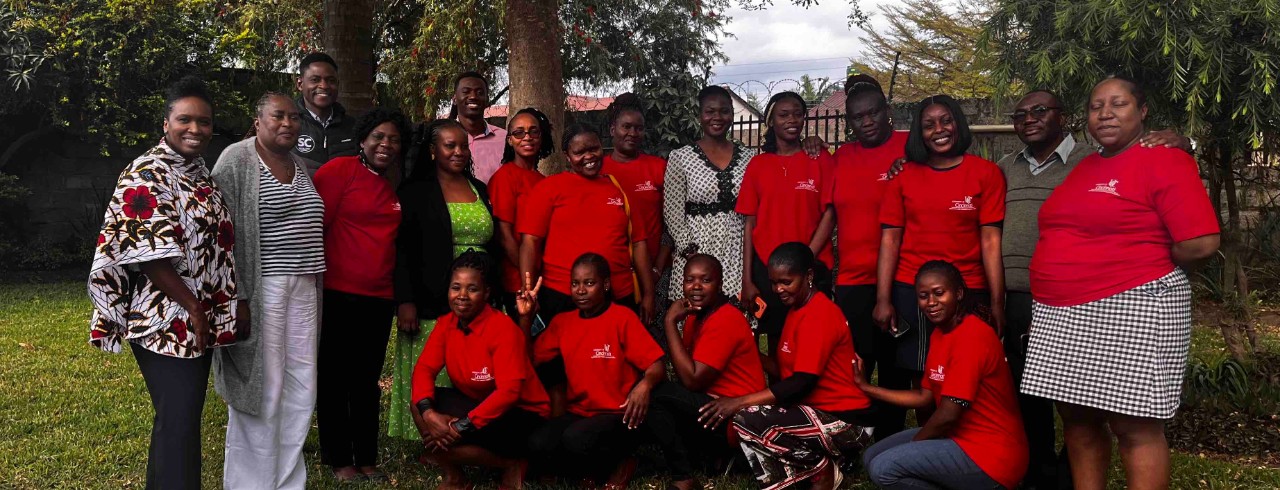
Local 12: UC's Pinder named Cancer Moonshot Scholar
Researcher discusses cervical cancer prevention research in Zambia
The University of Cincinnati Cancer Center's Leeya Pinder, MD, is among the first 11 people named as Cancer Moonshot Scholars by the National Cancer Institute (NCI).
The Cancer Moonshot Scholars program is designed to advance cancer science while also diversifying the pool of researchers and the approaches to cancer research that NCI funds. The program is supported by the White House’s Cancer Moonshot Initiative and aligns with NCI’s Equity and Inclusion Program and NIH’s UNITE Initiative. The Cancer Moonshot Scholars program is led by the Center to Reduce Cancer Health Disparities. NCI intends to fund up to 30 additional Cancer Moonshot Scholars.
The research grant will provide Pinder with $2.75 million of funding during the first five years, with additional funding coming during the project’s last two years. Pinder recently joined Local 12's What's Happening in Health to discuss the Cancer Moonshot-funded research she is conducting in Zambia.
"I deal with women’s cancers and one of the things I’m most passionate about is ending the needless suffering of cervical cancer," said Pinder, associate professor in the UC College of Medicine Department of Obstetrics and Gynecology, Division of Gynecologic Oncology. "I wanted to create a project that was going to be novel and a little bit different than what we’ve been doing overseas, because what we’ve been doing doesn’t seem to be working."
Pinder said 600,000 women are diagnosed with cervical cancer each year, and about 300,000 women die of cervical cancer annually, with diagnoses and deaths primarily occurring in low to middle income countries.
"When we lose women, we’re affecting families," she said. "Child mortality and child growth and development is really tied to the life of our mothers overseas and here in the United States, so it’s really important to do something about this disease."
The POLESA study, named after a local word in Zambia meaning healing, will enroll 180 women in Zambia living with HIV and test the safety and effectiveness of a drug to prevent precancerous abnormalities from developing into cervical cancer.
"We’re using an older medication that’s an antiretroviral medication used for HIV, so we’re just trying to formulate it in a bit of a different way and use it on the cervix to prevent the progression from precancer to cancer in that population," Pinder said.
Regular Pap tests and the human papillomavirus (HPV) vaccine are important ways to help prevent cervical cancer, Pinder added.
"It actually is a preventable disease," she said. "We just have to make those techniques available worldwide."
Watch the What's Happening in Health segment. (Note: Segment begins around 13:36 mark of video.)
Featured photo at top: Pinder is leading the POLESA trial in Zambia. Photo provided by Leeya Pinder.
Related Stories
OncLive and Targeted Oncology: Drug yields long-lasting benefits to treat PEComa tumors
March 22, 2024
OncLive and Targeted Oncology covered research presented by the University of Cincinnati's Thomas Herzog that found patients with perivascular epithelioid sarcoma (PEComa) of gynecologic or peritoneal origin experienced rapid, durable responses when treated with the drug nab-sirolimus.
55KRC: UP-NEXT study tests ovarian cancer treatment
April 13, 2023
The University of Cincinnati's Amanda Jackson joined 55KRC's Simply Medicine program to discuss the UP-NEXT ovarian cancer clinical trial.
Local 12: UC's Pinder named Cancer Moonshot Scholar
October 23, 2023
The University of Cincinnati Cancer Center's Leeya Pinder joined Local 12's What's Happening in Health to discuss her Cancer Moonshot Scholars research project focused on cervical cancer prevention for women living with HIV in Zambia.
